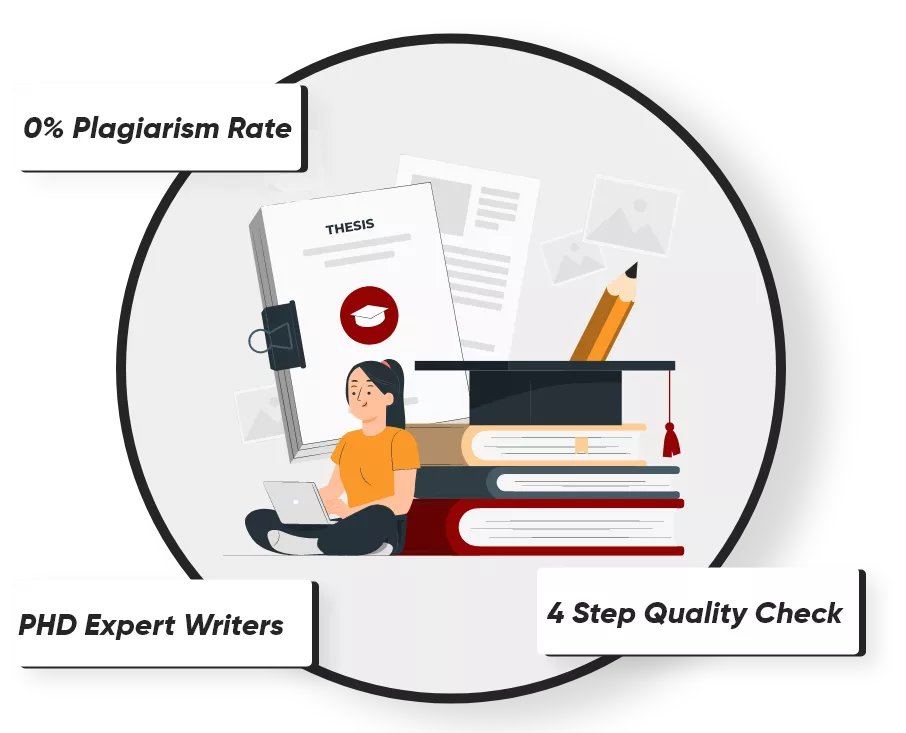The knowledge gained in this course will serve as a basis for further study in psychology, giving students a fundamental understanding of the terminologies, ideas, concepts, methodologies, and research findings. Topics include personality, social psychology; abnormal psychology; motivation and emotion; development; health, stress, and coping. Thus, it is common for students to search for PSYCB1102 assessment answers online.
Thus, through this unit, the vocabulary, ideas, theories, approaches, and research findings in many core areas of psychology will become clear to the students.
Studying this unit is a beneficial step for your psychology career. In this case, we are always here to guide and support you through the course and provide all the necessary PSYCB1102 assignment help.

Learning Outcomes
The following are some of the learning outcomes given by our subject matter experts. These are the necessary skills required to work in a professional setting.
- Identify and describe the theories, guiding principles, and key ideas in many important psychological fields.
- Review, debate, and evaluate key psychological concepts, techniques, and discoveries.
- Determine, explain, and interpret research methods.
- Analyse, analyse, and interpret research findings in the literature.
- Fundamental conduct, analysis, and communication of psychological research
- When discussing psychological research, pick and use the relevant American Psychological Association (APA) conventions.
- Analyse psychological theories and concepts critically.
- Create a report utilising APA guidelines.
- Demonstrate your knowledge of important psychological ideas and principles.

For any challenges faced while studying this unit, you can connect with us at any time, and our experts will provide you with the best PSYCB1102 dissertation help to save time and help you manage your academic venture.
Personality and its Types
The Latin persona describes players' theatrical masks to portray multiple characters or conceal their identity. Personality refers to individual variances in typical thought, emotion, and behavioural patterns in psychology. Understanding how people differ is one. Understanding how a person's numerous components work together to form their totality is the other.
Types of personalities according to Myers-Briggs Personality Type Indicator
According to four continuums introversion&extraversion, sensing&intuition, thinking&feeling, and judging&perceiving the Myers&Briggs Personality Type Indicator categorises personalities. Some of the types are -
- ISTJ - This stands for Introverted, sensing, thinking, and judging. This personality type is orderly and rational but also tends to be judgemental.
- INFP - This stands for introverted, intuitive, feeling, and perceiving. They frequently have idealistic perspectives and are feeling-sensitive.
- ESTJ - This stands for extraversion, sensitivity, thinking, and judgement. They are often rule-abiding and forceful people.
- ENFJ - Extroverted, introspective, feeling, and judgement. Being warm and devoted, they are referred to as "givers," however they may also be too protective.
What is Intelligence?
Intelligence includes mental abilities like logic, reasoning, problem-solving, and planning. According to current definitions, intelligence is the capacity to carry out the following tasks -
- Learn from experience
- Recognise problems
- Solve problems
Types of Intelligence
There are several theories behind classifying intelligence. These include -
Primary Mental Abilities
Instead of one general capacity, psychologist Louis L. Thurstone (1887&1955) concentrated on seven fundamental mental capacities.
- Associative memory - a capacity for memory and recall
- Numerical ability - the capacity for mathematical problem-solving
- Perceptual speed - the capacity to distinguish between and compare items
- Reasoning - the capacity to identify rules
- Spatial visualisation - the capacity to see connections
- Verbal comprehension - the capacity to interpret and define words
- Word fluency - the capacity to speak quickly
Multiple Intelligence
Howard Gardner proposed eight different types of intelligence based on the talents and skills that are valued in diverse cultures -
- Bodily-kinesthetic intelligence
- Interpersonal intelligence
- Intrapersonal intelligence
- Logical-mathematical intelligence
- Musical intelligence
- Naturalistic intelligence
- Verbal-linguistic intelligence
- Visual-spatial intelligence
Motivation and Emotion
We typically imagine motivation as something that encourages someone to act and behave in a certain way to achieve a goal. On the other hand, emotion is the term used to describe the thoughts and feelings that follow a motivation or drive, the actions the purpose motivates, and the accomplishment or failure of the aim. But motivation and feeling go beyond this kind of link.
Types of Motives
Biological and psychological motivations are the two main categories.
- Biological Motives - As the body's physiological systems primarily control them, biological motives are sometimes referred to as physiological motives. Consider the natural, biological factors that contribute to motivation, such as hormones, neurotransmitters, and brain chemistry (hypothalamus, limbic system, etc.). For example, sex, thirst, and hunger.
- Psychological Motives - On the other hand, an individual learns most of their psychosocial reasons from their interactions with their surroundings. Focus on the psychological, social, and environmental components that affect motivation and how they interact with one another. For instance, motivations include the drive for success, allegiance, power, curiosity and exploration, and self-actualisation.
What is Emotion?
In psychology, the term "emotion" refers to a conscious, subjective experience marked by mental states, bodily processes, and psychological or physiologic manifestations (e.g. facial expressions).
The words "emotion" and "feeling" are frequently used interchangeably. Feeling refers to the aspect of emotion that includes physical activities, such as pleasure or pain. Long-lasting yet less intense than emotion, the mood is an emotional state.
Since Emotion is subjective, there are several theories behind it, including -
Physiological Bases of Emotion
There are two primary theories to justify this base, suggesting the thalamus, hypothalamus, limbic system, and cerebral cortex all play key roles in the neurophysiological activations that lead to the perception of emotions.
- James-Lange Theory - According to the hypothesis, external cues cause physiological reactions in the viscera, or internal organs like the heart and lungs, which are then linked to muscular activity.
- Cannon-Bard Theory - According to this, the thalamus mediates the entire emotional process by sending information to the cerebral cortex, skeletal muscles, and the sympathetic nervous system once the thalamus perceives the emotion-provoking event. The cerebral cortex then decides the type of stimulus being received by using prior knowledge.
Cognitive Bases of Emotion
Most psychologists now believe that our cognitions, perceptions, memories, and interpretations, are crucial components of emotions. According to the two-factor hypothesis put out by Stanley Schachter and Jerome Singer, emotions are made up of two components: physical arousal and a cognitive name. They assumed that our knowledge of our current arousal is the starting point for our emotional experience.
Cultural Bases of Emotion
According to studies, the most fundamental emotions are innate and cannot be acquired. Psychologists generally believe emotions, particularly facial expressions, have deep biological roots.
Culture and Emotional expression - The verbal communication channel includes spoken words and vocal speech characteristics like pitch and volume. The non-verbal channels of communication include facial expression, kinetic (body movement, posture, and gesture), and proximal (physical separation during the face-to-face encounter) behaviours.
The most frequent way people convey their emotions is through their faces. Given that the face is in plain view of everyone, the amount and type of information it conveys is simple to understand.
Darwin's theory that fundamental emotions like pleasure, fear, anger, disdain, disgust, sadness, and surprise have universal and innate facial expressions has some study to back it up.

Individual Differences
According to Drever James, individual differences exist among group members that relate to their mental or physical characteristics and deviate from the group's average.
Different types of Individual Differences
- Physical differences - Individual variations include being short or tall, having a dark or light complexion, fat, skinny, or feeble.
- Intellectual Differences - Individuals of different ages and intellectual levels exist. Based on their IQ, we may divide people into groups ranging from super-normal (above 120) to stupid (between 0 and 50).
- The difference in attitude - Individuals have varied attitudes toward various persons, things, institutions, and power levels.
- Differences in motor abilities - Even if their skill levels are the same, some people can easily complete mechanical jobs while others find them quite challenging.
- Emotional differences - Different people have different emotional responses to the same scenario. Some people are aggressive and impatient, and they lose their temper quickly. Others have a calm disposition and are not readily irritated.
Suppose you're looking for online psychology assignment help, connect with the experts at Sample Assignment and get your queries resolved instantly.
PSYCB1102 Assignment Sample Online



This is a sample paper provided by our subject matter experts. You can also access our assignment solution on PSYCB1102 along with the academic support, and all of this at a price structure tailored to your budget.
Why hire us for the Best PSYCB1102 Academic Assistance?
There are several benefits of hiring our services, including -
- We try to complete your academic writing assignments in time for evaluation. We pledge to do all jobs by the deadline. Our professionals might meet your urgent essay needs.
- The finest learning approach is one-on-one instruction because it facilitates brainstorming with the instructor or mentor, which broadens the student's perspective. We continuously advise students to consult with professionals that provide online assignment assistance rather than just purchasing papers there.
- We understand that students cannot use all their investment money for one project. Because of this, we perhaps provide the finest pricing in the industry. Additionally, you might benefit from mass limitations on several projects.
- No matter what time it is, our experts are here day and night to assist you in finding the right solutions if you are stuck on a fascinating question or are having trouble figuring out the next step of report writing. We have a specialised Customer Support team available around-the-clock to help you with your assignment and address students' problems while submitting their assignments.
Thus, you don't have to look for people and humbly request do my assignment. Connect with us now to get the best academic help and assignment writing service, as we provide 100% authentic content along with their Turnitin and Grammarly report.
Frequently Asked Questions
There are several diploma options for psychology, promising a good career -
- Diploma in Clinical Psychology
- Diploma in Child psychology
- Diploma in Counselling
- Diploma in Cognitive Behavioural Therapy, etc.
A psychologist's duties include advising patients and administering psychotherapy. You need a master's and doctorate to become a psychologist. A licence is required to practise psychology.
3 Beech Place, Hallam 3803, Victoria, Australia is where our office is situated.
Yes, we provide substantial discounts if you place a large number of orders.
Clients Speaks
Order Now @ Upto 50% Off
Get
Flat 50% Off
on your Assignment Now!









